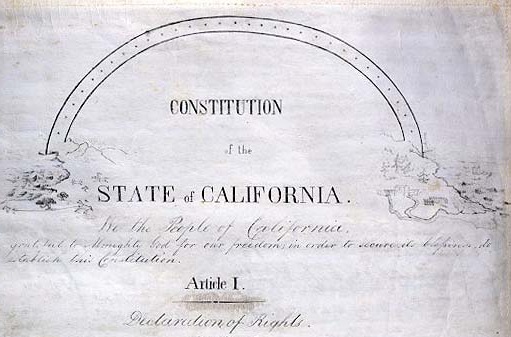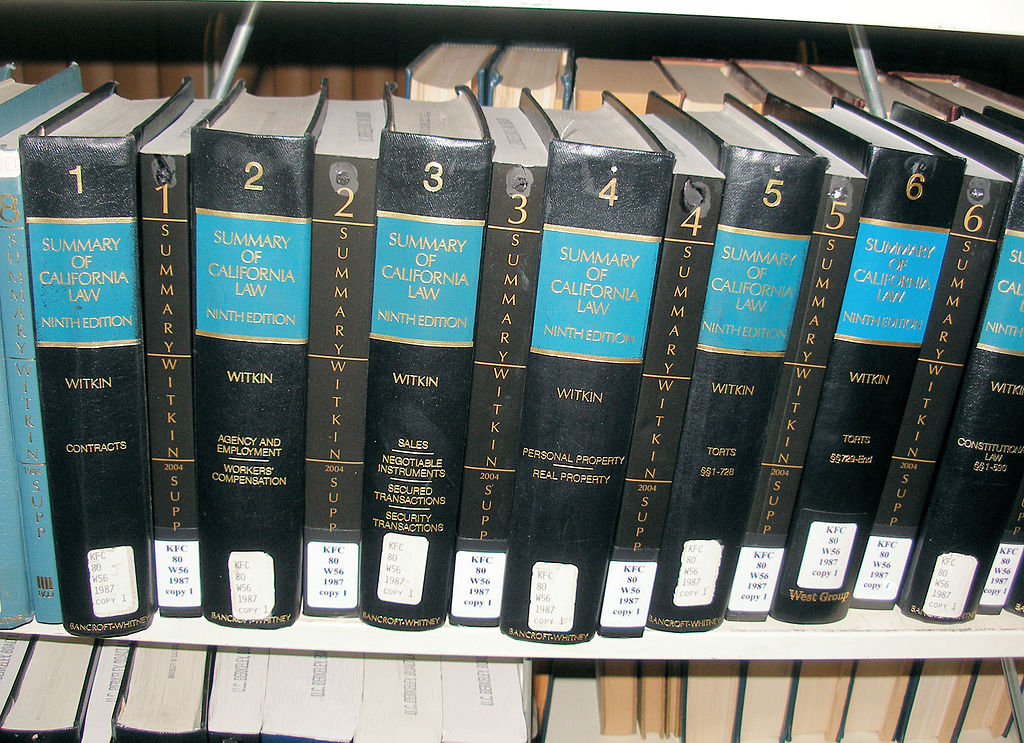
California State Capitol. (Photo: Kevin Sanders for California Globe)
An Overview of Local and State Open Meetings Laws in California
What exactly is a ‘meeting?’
By Chris Micheli, October 21, 2019 2:25 am
California has three types of open meetings laws that apply to local and state governmental entities. These laws, adopted over the years, apply to state agencies and departments, the Legislature, and local entities (including city councils and boards of supervisors). These open meeting acts are generally referred to as “Bagley-Keene” (applying to state entities), “LOMA” (applying to the Legislature), and the “Brown Act” (applying to local entities). It is helpful to be aware of these laws in order to understand how to participate in local and state meetings of executive and legislative branch entities.
Bagley-Keene Open Meeting Act
“Bagley-Keene,” as it is known in the Capitol community, was adopted in 1967. It implements relevant portions of the California Constitution which declares that “the meetings of public bodies and the writings of public officials and agencies shall be open to public scrutiny”. The state constitution mandates open meetings for state agencies, boards, and commissions.
It is similar to the Brown Act which applies to meetings at the local government level. The Bagley-Keene Act provides that “The people of this state do not yield their sovereignty to the agencies which serve them. The people, in delegating authority, do not give their public servants the right to decide what is good for the people to know and what is not good for them to know. The people insist on remaining informed so that they may retain control over the instruments they have created.”
In addition, Act provides in Government Code Section 11120:
“It is the public policy of this state that public agencies exist to aid in the conduct of the people’s business and the proceedings of public agencies be conducted openly so that the public may remain informed. In enacting this article the Legislature finds and declares that it is the intent of the law that actions of state agencies be taken openly and that their deliberation be conducted openly.
“The people of this state do not yield their sovereignty to the agencies which serve them. The people, in delegating authority, do not give their public servants the right to decide what is good for the people to know and what is not good for them to know. The people insist on remaining informed so that they may retain control over the instruments they have created. This article shall be known and may be cited as the Bagley-Keene Open Meeting Act.”
The practical impact of the Bagley-Keene Act is that state agencies and departments must provide members of the public to address agenda items in public meetings of the respective state agencies or departments. Before the ability to comment on agenda items, the public must be made aware of any meetings of the state entity.
As a result, notice of state agency or department meetings must be provided to any person who makes such a request in writing at least 10 days in advance of the meetings. Notices must include a specific agenda for meetings, including the items of business to be transacted or discussed, and no item may be added to the agenda subsequent to the notice.
State entities may, however, take action on items of business not on the agenda under certain limited circumstances, most notably upon a determination by a majority vote of the State entity that an emergency situation exists. In addition, the Act requires a State agency to conduct any meeting or function in any facility prohibiting admittance to any person on the basis of race, religious creed, color, national origin, ancestry, or sex.
There are three critically important aspects of the Bagley-Keene Act to understand that address the following questions: What’s a meeting; what’s a state body; and, what’s an action taken. These terms are explained below:
What’s a “Meeting”? (Gov. Code Section 11122.5 (a))
A “meeting” includes any congregation of a majority of the members of a state body at the same time and place to hear, discuss, or deliberate upon any item that is within the subject matter jurisdiction of the state body to which it pertains.
This can apply to informal gatherings, as well as meetings via video conference or those conducted over the telephone by conference call. Be aware that “serial meetings” count toward this definition. In other words, state agency officials cannot get around the Act’s requirements via a series of individual calls or meetings.
What’s a “state body”? (Gov. Code Section 11121)
Every state board, or commission, or similar multimember body of the state that is created by statute or required by law to conduct official meetings is a state body. In addition, a board, commission, committee, or similar multimember body that exercises any authority of a state body delegated to it by that state body qualifies. Finally, an advisory board, advisory commission, advisory committee, advisory subcommittee, or similar multimember advisory body of a state body created by formal action of the state body and consisting of three or more persons is a state body under the law.
Be aware that the Act’s provisions go beyond just the full state body. In other words, this definition applies to advisory committees and other informal bodies that advise state entities. As a result, even a 3-person advisory committee to a state department must follow the open meeting laws.
What’s an “action taken”? (Gov. Code Section 11122)
Action taken means a collective decision made by the members of a state body, a collective commitment or promise by the members of the state body to make a positive or negative decision, or an actual vote by the members of a state body when sitting as a body or entity upon a motion, proposal, resolution, order or similar action.
The easiest example of this provision is a vote taken by a majority of the body’s members. But note that the Act’s provisions apply even to commitments or promises made by members of the state agency or department.
AG: Caution Regarding “Collective Commitment”
According to the Attorney General, “Conversations that advance or clarify a member’s understanding of an issue, or facilitate an agreement or compromise among members, or advance the ultimate resolution of an issue, are all examples of communications that contribute to the development of a concurrence as to action to be taken by the body.”
Closed Sessions (Gov. Code Section 11126)
Closed sessions can only be held under very limited conditions:
- Appointment, employment, evaluation, or discipline (including dismissal) of a public employee;
- Licensing, honorary degrees, real property negotiations, investments;
- To confer with or receive advice from legal counsel re pending litigation
The law has strict requirements regarding notice of closed sessions, what must be disclosed, and what must be subsequently reported in open session.
Remedies for Violation
If the Bagley-Keene Act is violated, the decision of the body may be overturned if challenged within 90 days (Gov. Code Section 11130.3). Violations may be stopped or prevented (Gov. Code Section 11130). Costs and fees may be awarded (Gov. Code Section 11130.5), and criminal misdemeanor penalties may be imposed as well. (Gov. Code Section 11130.7.).
Legislative Open Meetings Law
The California Legislature is bound by the Legislative Open Meetings Law found in Sections 9027 through 9031 of the Government Code. The major provisions of this Act to be aware of include the following:
Caucuses of the Legislature have full authority to meet in closed session; whereas, State agencies have very limited authority to meet in closed session except for specified exceptions including litigation, personnel actions, etc.
Legislators can meet informally outside of committee meetings and floor sessions to discuss policy so long as no formal action is taken and so long as less than a majority of the body is involved. Staff and other intermediaries working on behalf of members are not counted, and “serial meetings” are not prohibited. (Note that the Bagley-Keene Act prohibits serial meetings and counts staff as board members.)
Legislative leaders can meet with one another and the Governor in private to develop policy proposals so long as the product is brought to an open committee meeting or floor session for adoption. (Note that designees of a state agency engaging in the same activity would usually constitute a “committee” or “advisory body” which must meet in open session.)
This Act is found in Government Code Article 2.2 entitled Open Meetings, which is contained in Sections 9027 – 9031. Article 2.2 was added to the Government Code in 1989. The following are the key sections impacting the State Legislature:
Gov’t Code Section 9027
With certain exceptions, all meetings (defined as a gathering of a quorum in one place for the purpose of discussing official matters) of a house of the Legislature or a committee thereof shall be open and public, and all persons shall be permitted to attend the meetings.
Gov’t Code Section 9028
Any meeting that is required to be open and public can only be held after full and timely notice to the public as provided by the Joint Rules of the Assembly and Senate.
Gov’t Code Section 9029
A house of the Legislature or a committee may hold a closed session solely for any of the following purposes:
(1) To consider the appointment, employment, evaluation of performance, or dismissal of a public officer or employee, to consider or hear complaints or charges brought against a Member of the Legislature or other public officer or employee, or to establish the classification or compensation of an employee of the Legislature.
(2) To consider matters affecting the safety and security of Members of the Legislature or its employees or the safety and security of any buildings and grounds used by the Legislature.
(3) To confer with, or receive advice from, its legal counsel regarding pending or reasonably anticipated, or whether to initiate, litigation when discussion in open session would not protect the interests of the house or committee regarding the litigation.
(b) A caucus of the Members of the Senate, the Members of the Assembly, or the Members of both houses, which is composed of members of the same political party, may meet in closed session.
Gov’t Code Section 9030
Each Member of the Legislature who attends a meeting of the Assembly, the Senate, or any committee or subcommittee, where action is taken in violation of Section 9027, with knowledge of the fact that the meeting is in violation thereof, is guilty of a misdemeanor.
Gov’t Code Section 9031
Any interested person may commence an action by mandamus, injunction, or declaratory relief for the purpose of stopping or preventing violations or threatened violations of this article by Members of the Legislature or to determine the applicability of this article to actions or threatened future action of a house of the Legislature or a committee thereof.
Ralph M. Brown Act
The Brown Act was adopted in 1953 and applies to open meetings at the county and city levels of local government. It is found at Government Code Sections 54950, et seq. Its purpose is to guarantee the public’s right to attend and participate in meetings of local legislative bodies.
According to proponents of the Brown Act, city councils, county boards of supervisors, and other local government bodies were avoiding public scrutiny by holding secret “workshops” and “study sessions.” The Brown Act solely applies to California city and county government agencies, boards, and councils. It is comparable to the Bagley-Keene act that requires open meetings for state government agencies in California.
The Brown Act contains the following findings and declarations: “In enacting this chapter, the Legislature finds and declares that the public commissions, boards and councils and the other public agencies in this State exist to aid in the conduct of the people’s business. It is the intent of the law that their actions be taken openly and that their deliberations be conducted openly.
“The people of this State do not yield their sovereignty to the agencies which serve them. The people, in delegating authority, do not give their public servants the right to decide what is good for the people to know and what is not good for them to know. The people insist on remaining informed so that they may retain control over the governing bodies they have created.”
All local entities in California are bound by the Brown Act, whose major provisions include:
The majorities of decision-making bodies may not decide among themselves on issues within their jurisdictions except in open and publicized meetings held within their boundaries. Agencies must publicize when and where meetings will occur, as well as what will be discussed, so the public can observe those meetings—72 hours/3 days’ notice required (Note that is this different that the 10 days’ notice under the Bagley-Keene Meeting Act).
No action can be taken by the decision-making body until such item has been placed on the agenda for consideration. There are no secret ballots allowed, whether final or preliminary. The public has a right to be heard on matters on the agenda before decisions are made. The public also has a general right to address agency decision-makers on items of concern to them, even if they are not on the agenda (typically called the “public comment period” on agendas).
Similar rules and restrictions are when closed sessions may be held, prohibitions on “serial meetings,” and coverage of committees and advisory bodies. The Brown Act is almost identical to Bagley-Keene Act penalties for violation of the law—must act within 90 days and give agency an opportunity to remedy before filing suit.
This article provides a summary of the key provisions of California’s open meetings laws that are important to ensure public notice and opportunity to participate in meetings of local and state bodies when they deliberate about public policy issues that affect the general public, as well as an opportunity to be heard before any final votes are taken by these local and state bodies.
- Response to Interrogatories - February 20, 2026
- Insignia of Nonprofit Associations - February 19, 2026
- Endangered Species Regulation - February 19, 2026




